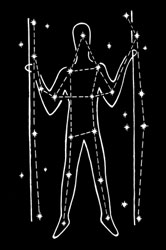Panel discussion at ONCA gallery (Ann Light, Alex Golding, Guyan Porter and Lorenza Ippolito)
As an ongoing process, artists and collaborators, invited guests get together to have discussions around the subjects that arise in the making of the project ManMade
A Record in progress / 11th March we meet for our first discussion:
Janina, Melina, Ed, Guyan, Mim, Vicent, Raúl, VV and Xelís
Only after 4 hours of talk we realized that we should have recorded the conversation, too late.
Very weak attempt to recall:
-what is in a name? ManMade put women off as being excluded by a name
-Who? man Made
-Why the need to constantly define ‘what is human’ and what is not. To separate from what is no human, give us the right to treat the not human as lacking any right – human/animals – in war one of the first attacks to the other is to dehumanize them, insults -rats-pigs etc.
how
-Humans presumptuous seen themselves above the rest of animals. Feeling / sensing like an animal.
-how technologies / western world can have a negative – detrimenatl – dehumanize? impact vs other cultures, other knowledge.
-internet: is possible to think of interent / technology in terms of positive / negative?
-acquiring knowledge how? how do you acquire knowledge? through art?
-can we see technology as part of ‘our nature’, why and how separate human nature / technology?
-rape as weapon of war/ Croatian sociologist equaling rape as a weapon of war to ‘marking the territory’, ownership of women / territory
reflecting on ‘borders, skin and humans’, ‘electricity’, ‘family’ and so on.
Here is a link for an interview with Nikola Tesla titled ‘Everything is the Light’ from 1899 (I guess there is a printed version available as well); also I am sharing an interesting article (below)
https://www.youtube.com/watch?v=77LEblQNI94
Tesla predicts gender equality and how technology will empower women, Goethe and the invention of clouds, Susan Sontag on the aesthetics of silence, the beautiful and bittersweet true story of why Gauguin became an artist, and more.
When Woman Is Boss: Nikola Tesla on Gender Equality and How Technology Will Unleash Women’s True Potential
Engineer, physicist, and futurist Nikola Tesla (July 10, 1856–January 7, 1943) is among the most radical rule-breakers of science and is regarded by many as the greatest inventor in human history. His groundbreaking work paved the way for wireless communication and imprinted every electrical device we use today. Without Tesla, I wouldn’t be writing these words on this keyboard and you wouldn’t be reading them on this screen. But like all true geniuses, Tesla envisioned not only the practical applications of his inventions but the profound cultural shifts that any successful technology precipitates.
One of the most surprising, most obscure, yet most incisive of Tesla’s predictions peers into the future of society’s changing gender roles and considers how the advent of wireless technology would empower women, liberating us to develop our full intellectual potential repressed by the patriarchy for centuries.
In January of 1926, a reporter named John B. Kennedy interviewed Tesla about these very ideas. The piece was published in Colliers magazine under the title “When Woman Is Boss” and is discussed in Margaret Cheney’s excellent Tesla: Man Out of Time (public library), which remains the most insightful and dimensional perspective on the great inventor’s mind and spirit.
After reflecting on the future uses of wireless technology and practically predicting the iPhone, Tesla points to the empowerment of women as one of the most significant effects of technology on the world of tomorrow:
It is clear to any trained observer, and even to the sociologically untrained, that a new attitude toward sex discrimination has come over the world through the centuries, receiving an abrupt stimulus just before and after the World War.
This struggle of the human female toward sex equality will end in a new sex order, with the female as superior. The modern woman, who anticipates in merely superficial phenomena the advancement of her sex, is but a surface symptom of something deeper and more potent fermenting in the bosom of the race.
It is not in the shallow physical imitation of men that women will assert first their equality and later their superiority, but in the awakening of the intellect of women.
Tesla goes on to predict “the acquisition of new fields of endeavor by women” and “their gradual usurpation of leadership” as the inevitable result of that previously repressed potential, newly uncorked by the interconnectivity and educational empowerment that wireless technology would make possible:
Through countless generations, from the very beginning, the social subservience of women resulted naturally in the partial atrophy or at least the hereditary suspension of mental qualities which we now know the female sex to be endowed with no less than men. But the female mind has demonstrated a capacity for all the mental acquirements and achievements of men, and as generations ensue that capacity will be expanded; the average woman will be as well educated as the average man, and then better educated, for the dormant faculties of her brain will be stimulated to an activity that will be all the more intense and powerful because of centuries of repose. Woman will ignore precedent and startle civilization with their progress.
Only a decade later, Hedy Lamarr – herself a brilliant inventor who paved the way for wifi – would prove Tesla right, as would the growing numbers of women who would enter STEM fields and take leadership positions in the generations to come. Exactly twenty years later, Einstein would echo Tesla’s prescient words in his heartening letter of advice to a little girl who wanted to be a scientist.
Tesla: Man Out of Time is a fascinating read in its entirety. Complement it with the story of history’s greatest creative anarchists – a story, of course, starring Tesla.

